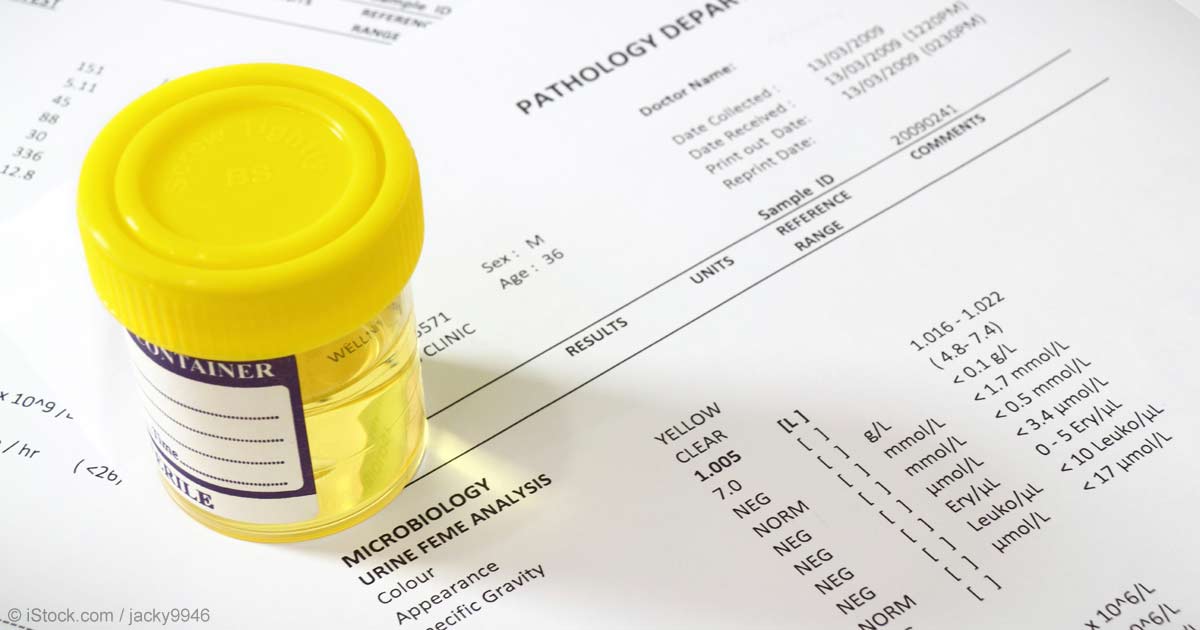Could a commonly prescribed medication like Prozac be unsafe and ineffective for young people? According to a study published in the International Journal of Risk & Safety in Medicine, the answer is a clear yes.1 This revelation challenges the widespread use of Prozac in treating adolescent depression and raises important questions about its safety and efficacy.
Prozac is one of the most frequently prescribed selective serotonin reuptake inhibitors (SSRIs) for adolescents struggling with depression. However, the International Journal of Risk & Safety in Medicine study2 highlights significant safety concerns and questions the drug’s effectiveness in this vulnerable age group. These findings suggest that what was once considered a standard treatment may not be as beneficial as previously thought.
Furthermore, regulatory data has highlighted inconsistencies in the reporting of adverse events, particularly suicidal behaviors, in clinical trials.3 This underreporting distorts the true safety profile of Prozac, again indicating that the risks associated with the medication may be greater than the published studies suggest.
In light of these concerns, lifestyle changes and psychotherapy emerge as safer and more effective alternatives for treating adolescent depression. Studies have shown that therapeutic approaches significantly reduce the risk of suicide among young patients.4 Understanding these alternatives is key for making informed decisions about mental health treatments for youth.
Prozac Poses Serious Risks for Young People
Clinical trials are the backbone of drug approval processes, supposedly providing data on safety and efficacy. For Prozac, an SSRI, these trials have shown inconsistencies.
The International Journal of Risk & Safety in Medicine study revealed biased outcomes favoring fluoxetine, the generic name for Prozac, and missing reports of suicidal events.5 Such discrepancies question the reliability of the published data and highlight the need for accurate reporting in medical literature.
This bias primarily stemmed from differential dropouts and missing data, which skewed the results in favor of the medication. Specifically, the improvement measured by the Children’s Depression Rating Scale-Revised was a mere 4% of the baseline score. Such a minimal change is not considered clinically significant, meaning that the drug’s impact on improving depressive symptoms was negligible.
In addition to the psychological risks, the study noted physical side effects. Participants on fluoxetine experienced reductions in height and weight over the course of 19 weeks, losing approximately 1 centimeter in height and 1.1 kilograms in weight.
Moreover, the medication was found to prolong the QT interval, a measure of heart rhythm that, when extended, leads to serious cardiac issues. These physical side effects further compound the concerns regarding the drug’s safety profile.
The comprehensive reanalysis concluded that fluoxetine is both unsafe and ineffective for treating depression in children and adolescents. The study calls into question the reliability of the original trials and underscores the need for more transparent and unbiased research practices in the approval of psychiatric medications for young populations.
Regulatory Oversights Conceal Critical Safety Risks of Prozac
Furthermore, the study highlighted that suicidal events were conspicuously absent from the published reports and study documentation. Specifically, instances where participants attempted suicide while on the medication were not included in the final journal articles.
This omission is alarming, as it conceals absolutely crucial safety information. In reality, precursors to suicidality or violent behavior occurred more frequently in participants taking fluoxetine compared to those receiving a placebo.
Journals that published these studies have not addressed the missing details. Despite being informed about the excluded suicide attempts, there have been no corrections or updates to the original publications.6 This lack of transparency misleads both doctors and patients about the drug’s safety.
For instance, in one of the trials, the number needed to harm was as low as six for nervous system events, seven for moderate or severe harm, and 10 for severe harm. These numbers indicate a high-risk of adverse effects associated with the drug.
Given these risks, exploring alternative treatments for adolescent depression is necessary. Psychotherapy has emerged as a safer option, with studies indicating its effectiveness in reducing suicide attempts among young patients.7,8 This therapeutic approach offers a non-pharmacological intervention that could be more beneficial for adolescents struggling with depression.
As it stands, the safety and efficacy of Prozac for young people remain contentious. The discrepancies in clinical trial data and the associated risks call for a reevaluation of its use in treating adolescent depression. Accurate and complete reporting ensures that all safety concerns are addressed, allowing for better treatment decisions and enhanced patient safety.9
So, while Prozac is intended to alleviate symptoms of depression, the risks, including increased suicidal behavior, cannot be ignored. Another meta-analysis also found that antidepressant exposure, particularly SSRIs, is linked to a higher risk of suicide attempts in youth.10
Researchers looked at data from 17 different studies involving children and teenagers, showing that those who were on antidepressant medications were more likely to make suicide attempts compared to those who weren’t taking these drugs.
Recommendations for Overcoming Depression at Any Age
Depression in adolescents is a serious concern, and it’s important to approach treatment thoughtfully. No matter your age, here are some steps you can take if you’re dealing with depression:
1. Optimize your gut health — Restoring gut health through probiotics and dietary changes, including avoiding seed oils rich in linoleic acid, is an important step to improved mental health and may alleviate symptoms of depression by positively influencing the gut-brain axis.
Other strategies to improve your gut health include avoiding processed foods and minimizing exposure to antibiotics, agricultural chemicals. This balanced nutritional approach supports cellular energy production and overall metabolic health, which are crucial for mood regulation and mental well-being.
2. Follow a healthy lifestyle — Engage in regular physical activity, eat a balanced diet tailored to support metabolic health and get adequate sleep. Physical activity boosts mitochondrial function and energy production, while proper nutrition provides the necessary fuel for both your body and mind. Simple changes, such as daily walks, nutritious meals and consistent sleep schedules, significantly improve mood and overall well-being.
3. Explore nondrug therapies — Incorporate counseling, cognitive-behavioral therapy or other therapeutic approaches. These methods help you develop coping strategies, address underlying issues contributing to your depression, and enhance overall mental resilience without relying on pharmaceutical interventions.
Emotional Freedom Techniques (EFT) is a form of psychological acupressure that has also been shown to be quite effective for depression and anxiety.
4. Optimize your vitamin D level — You’ll also want to optimize your vitamin D levels, ideally via safe sun exposure. Studies have shown vitamin D deficiency predisposes you to depression and that depression can respond favorably to optimizing your vitamin D stores, ideally by getting sensible sun exposure.11
5. Maintain open communication with youth — If you’re concerned about a young person’s mental health, foster an environment where they feel comfortable sharing their feelings and concerns. Being a supportive and non-judgmental listener helps them feel understood and less isolated in their struggles. Open communication also enables early identification of any worsening symptoms, allowing for timely and appropriate interventions.
6. Consider GABA, magnesium and methylene blue — If you’re looking for a natural option for anxiety and stress relief, gamma aminobutyric acid (GABA), widely available in supplement and tea forms, should be on your radar. GABA is a powerful neurotransmitter that inhibits excessive neuronal firing, helping to induce a natural state of calm12 in animal studies,13 while also reducing depression-related behavior.14
Further, magnesium also impacts your mental well-being and having insufficient levels may lead to depression.15 A systematic meta-analysis published in Frontiers in Psychiatry highlighted magnesium’s effects on depression.16 After reviewing seven clinical trials, they found that taking supplemental magnesium led to a significant decline in depression scores among adults with depressive disorder.
Methylene blue, the precursor molecule for hydroxychloroquine and chloroquine, is another option. It primarily works by interacting with the mitochondrial electron transport chain, which plays a vital role in cellular energy generation. In a three-week trial, methylene blue led to significantly greater improvement than placebo in people with severe depressive illness.17
Implementing these recommendations will create a supportive framework for those facing depression, helping them navigate their challenges more effectively through a holistic approach that emphasizes metabolic health, non-pharmaceutical therapies and strong emotional support.
If you’re currently on an antidepressant and want to get off it, you’ll want to have the cooperation of your prescribing physician. With their guidance, start lowering the dosage of the medication you’re taking. There are protocols for gradually reducing the dose that your doctor should be well aware of.
If you are feeling desperate or have any thoughts of suicide and reside in the U.S., please call the National Suicide Prevention Lifeline by dialing 988, or call 911, or simply go to your nearest hospital emergency department.
You cannot make long-term plans for lifestyle changes when you are in the middle of a crisis. U.K. and Irish helpline numbers can be found on TherapyRoute.com. For other countries, do an online search for “suicide hotline” and the name of your country.


